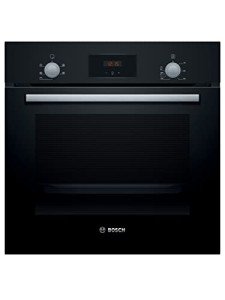Integrating Cooking: A Comprehensive Guide to Integrated Hobs and Ovens
In the modern-day kitchen, performance combines seamlessly with design. An integrated hob and oven system characterizes this blend, providing both functionality and visual appeal. As home cooks seek methods to improve their culinary areas, comprehending the benefits and features of integrated hobs and ovens becomes vital. This article delves into the various elements of integrated cooking appliances, providing insights into their advantages, installation factors to consider, and maintenance suggestions.
What is an Integrated Hob and Oven?
An integrated hob and oven setup refers to the design where the cooking hob (the surface on which pots and pans are positioned to prepare food) and the oven (the home appliance utilized to bake, roast, and broil) are created to fit effortlessly into kitchen cabinet systems. This cohesive style not just conserves area however likewise enhances the visual uniformity of the kitchen.
Secret Features of Integrated Hobs and Ovens
- Space Efficiency: These appliances are developed to fit within standard kitchen built in oven cabinetry, optimizing kitchen area while enabling more storage alternatives.
- Elegant Appearance: Integrated models provide a smooth, contemporary appearance that can elevate any kitchen's aesthetic.
- Boosted Functionality: Many integrated systems feature innovative functions such as induction cooking, integrated hob and oven self-cleaning ovens, and smart technology compatibility.
- Better Usability: Placing the hob at a proper height and having the oven conveniently positioned listed below can improve cooking ergonomics.
Benefits of Integrated Hobs and Ovens
The growing preference for integrated hobs and ovens emerges from several associated advantages:
1. Space-Saving Design
- Integrated appliances eliminate the need for large standalone units.
- They allow for more counter area, developing a functional work space for food preparation.
2. Visual Cohesion
- Integrated systems can be finished to match cabinets, supplying a sleek and unified look.
- The kitchen can keep a minimalist design, devoid of visual clutter.
3. Superior Functionality
- Functions like touch controls, timers, and automated cooking programs can enhance the cooking experience.
- Induction hobs can offer quicker cooking times and more accurate temperature level control compared to conventional gas or electric hobs.
4. Energy Efficiency
- Many modern integrated ovens come with enhanced insulation and energy-efficient features, decreasing energy intake.
- Induction hobs use energy straight in the pots and pans, causing less heat loss and faster cooking.
Installation Considerations
When considering an integrated hob and oven, several aspects should be evaluated during setup.
1. Area Measurements
- Kitchens Layout: Ensure the measurements of the offered area accommodate both the hob and oven.
- Ventilation: Adequate ventilation is essential to avoid overheating and ensure effective operation, particularly with gas designs.
2. Electrical and Gas Connections
- Power Supply: Verify that the kitchen's power supply meets the home appliance requirements (voltage, amperage).
- Gas Lines: For gas hobs, expert setup may be required to ensure safety.
3. Customization and Finishes
- Pick surfaces that complement kitchen interiors, such as stainless-steel, glass, or even customized cabinetry to hide the appliances.
4. Accessibility
- Ensure that both the hob and oven are quickly obtainable. An ergonomic setup will enhance the cooking experience and make it much safer.
Integrated Hob and Oven Models
| Design | Type | Key Features | Cost Range |
|---|
| Bosch Series 4 HBG634BBR | built in ovens and microwaves-In | Wi-Fi connectivity, several cooking modes | ₤ 1,200 - ₤ 1,500 |
| Samsung NZ48K7570UG | Induction | Flex zone, smart innovation, touch controls | ₤ 1,500 - ₤ 2,000 |
| Miele H 6260 BP | built in range-In | Self-cleaning, automated programs, streamlined design | ₤ 2,500 - ₤ 3,500 |
| NEFF B57VR22N0 | Multifunction | Slide&& Hide door, advanced heat circulation | ₤ 2,000 - ₤ 2,500 |
Maintenance Tips
To optimize the life and functionality of integrated hobs and ovens, proper upkeep is crucial:

- Regular Cleaning: Clean the hob and oven frequently to avoid accumulation from spills and food residues. Use non-abrasive cleaners to safeguard surfaces.
- Check Seals and Gaskets: Check oven door seals to guarantee efficient heating and avoid energy loss.
- Look for Damage: Regularly check gas hose pipes, electrical cables, and connections for wear or damage. Immediate repair or replacement is crucial for safety.
- Follow Manufacturer's Guidelines: Adhere to the specific maintenance instructions provided by the manufacturer for optimum performance.
Frequently asked questions
1. Can I set up an integrated hob and oven myself?
- While some house owners choose DIY installation, it is suggested to employ a professional, especially when gas connections or electrical circuitry are included.
2. Are integrated hobs and ovens energy-efficient?

- Lots of modern-day integrated systems are developed with energy efficiency in mind, including thermal insulation and energy-saving modes.
3. What is the best product for an integrated hob and intergrated oven and hob?
- Stainless-steel is popular due to its sturdiness, ease of cleaning, and resistance to rust. Nevertheless, glass ceramic and enamel-coated alternatives likewise offer visual appeal.
4. How do I troubleshoot common concerns with integrated hobs and ovens?
- Describe the user handbook for fixing standards. Basic problems like power failures or uneven cooking may often be fixed through easy modifications or resets.
An integrated hob and oven system uses a combination of functionality and style that aligns with modern kitchen styles. By comprehending the advantages, installation requirements, and maintenance tips connected with these appliances, property owners can make educated decisions that enhance their cooking experiences. As cooking areas evolve into multifunctional spaces, integrated cooking solutions will continue to gain popularity, shaping the future of culinary spaces.